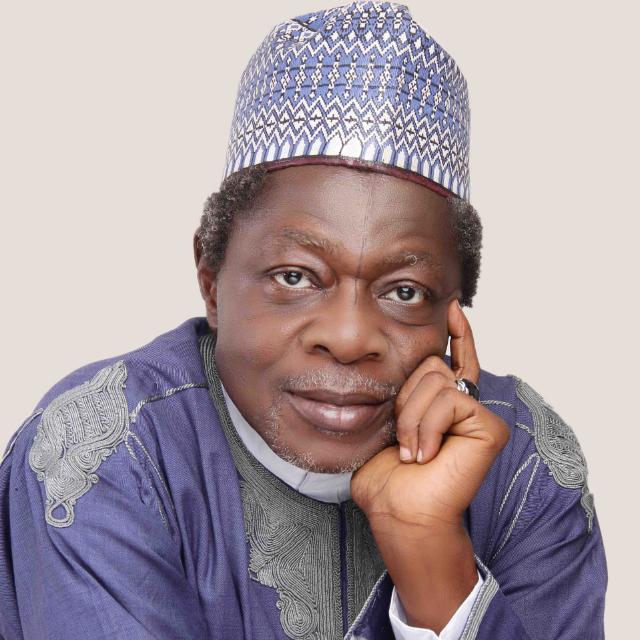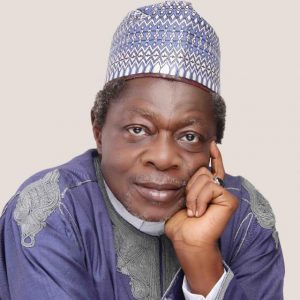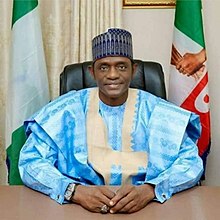Opinion
To Buni, a Quintessential Bridge-Builder @ 54, by Hassan Gimba
Published
4 years agoon


Gimba

Buni
His story is stuff fit for legends. Hardly do you find a human being like Governor Mai Mala Buni, blessed with power and wealth, the two most sought-after possessions, yet imbued with humility, generosity, grace and the unquenchable desire to not only serve others but empower them as well.
When Mai Mala Buni was born on November 19, 1967, some 54 years ago, little did those around Hajiya Khadijah, his mother, know they ushered into this world a child who will steer his young state towards development while stabilising his country’s polity and helping to save it from unravelling.
But what is in a date? As with many things that only God knows why, 19th November eventually became International Men’s Day, observed by over 57 countries, to celebrate man and his sacrifice to build a family and a nation, with its liturgical colour as blue, one of his favourite colours.
His late father, Alhaji Bukar, a successful business owner and very knowledgeable in the ways of the Qur’an, who came from a family that currently boasts of over fifty huffaz (huffaz is the plural of hafiz and a hafiz is one who has memorised the Qur’an), however might have had an inkling of what God had given him. And it could be why he named him after the most respected traditional ruler of their area. He educated him in both western and Islamic education and thought him to be altruistic, humble, and generous.
When his above-average intelligence son was admitted into Government Secondary School, Goniri, he bought a brand-new tipper truck, got a driver and branched off into the business of supplying sands to construction sites. But he did that specifically so that his child will not lack in an era when a simple letter or message took an interminable period to reach the receiver. And so he based it in the town and instructed those he put in charge of the truck to give young Buni five naira every week from the proceeds. And as encouraged by his father, he became a source of succour to his schoolmates, taking care of their basic needs with his words becoming bankable, according to his childhood friends and associates.
Plato, the Athenian philosopher, might be referring to his type when he said, “The highest form of knowledge is empathy, for it requires us to suspend our egos and live in another world.”
He joined politics early in life and contested for a councillor’s seat, which he won easily because there was a unanimous decision by his party members and, hold on, the opposition to support his candidature. At a young age, barely out of his teens, they made him speaker in a council of elders.
Since then, politically, he has not looked back as his stocks continued to rise. The difference between his rise in life and that of others is that he retains his old relationships – which he values immensely, and garners more along the way. He became a bridge-builder and a rallying point to many who are interested in human progress. His life is a testimony of the saying that like minds attract.
Those who got to know him when destiny thrust the affairs of the All Progressives Congress (APC) into his hands can bear witness that he is a captain who calms frayed nerves and steadies a ship through the worst of storms.
It is an open secret that the APC was heading for the rocks before he assumed the interim chairmanship of its caretaker committee, and other political parties, especially the Peoples Democratic Party (PDP), were happily circling, like vultures sensing a potential carcass, for the impending implosion.
The turmoil in the ruling party no doubt affected the smooth running of government since the government came to power through it. And the country would be the loser.
However, when Governor Buni came onto the scene, he stabilised the party and that became a source of relief to the government.
In June last year when he was made the interim chairman of his party’s national convention committee, I had cause to write on this page. Here is an extract: “…It is against this backdrop that one can say that, with the appointment of Mai Mala Buni to steer its course as a caretaker chairman, perhaps APC’s trajectory would swerve away from the brink, and like the phoenix, it is fated to rise again.
“What people will witness is the calmness that would soon envelop the ruling party, for the new chairman is a man who, by all means, avoids friction and rancour. No two contending parties will sit with him and one of them would come out grumbling because he so much believes in fairness, and that justice cannot be for one side alone. He is one person who believes in building bridges and maintaining them. “And he echoed this after his swearing-in when he said ‘… it’s all about doing justice to every member of the party. Without justice, there won’t be peace… if you don’t manage crisis, obviously crisis will manage you.’ And he did not say these words on marble to get applause. No, that is the real him.
“Even before his current appointment, the trust the president and other stakeholders had in him had made him a sort of arbiter for the party, quenching fires here and there and taking part in campaigns for the enhancement of the party’s electoral successes around the country.
“Those who know him well know he is cultured. So, the era of insults, roforofo fights and spewing forth unguarded statements is over. You will never hear him abuse any person in the opposition or within his party, even if that person insults him. And when any good that is meant for his avowed enemy is about to escape from his grasp, he would be the first person to force it back to its rightful owner. This is the extent of his fairness. He is a thoroughbred politician, broad-minded, cosmopolitan but at ease with the locals and local settings, humble and extremely intelligent.
“The opposition parties will no longer be full of glee, nor will they sleep again, for, by the time he would be through with his assignment, they would rue their premature celebration that the ruling party is gone. They are up against a focused, suave and sagacious dyed-in-the-wool politician. And as they will soon find out, like the mother hen, he would unite and cover his party while successfully poaching from theirs.”
The sorry situation in Nigeria now needs people like Buni who can assuage hard feelings and unite all. Nigeria needs such young and vibrant leaders, but above all, those like him who can make every citizen feel Nigeria cares for him.
The unfortunate security challenges we are facing are nothing but protests from those who have given up on the country because they believe the system does not give them a chance to survive. A leader of the calibre of Buni who can make everyone feel important and recognised by the state will disarm such turncoats.
Those agitating for a separate nation, too, will embrace a charismatic leader in the mould of Buni, who can make them believe that our greatness and survival as a people depend on our unity, brotherliness and love for one another.
Happy birthday, Governor Mai Mala Buni. May the creator of the universe and all in it continue to bless you with wisdom, empathy, love for the nation and more responsibilities for the betterment of humanity.

mitolyn
January 25, 2026 at 3:16 am
**mitolyn**
Mitolyn is a carefully developed, plant-based formula created to help support metabolic efficiency and encourage healthy, lasting weight management.